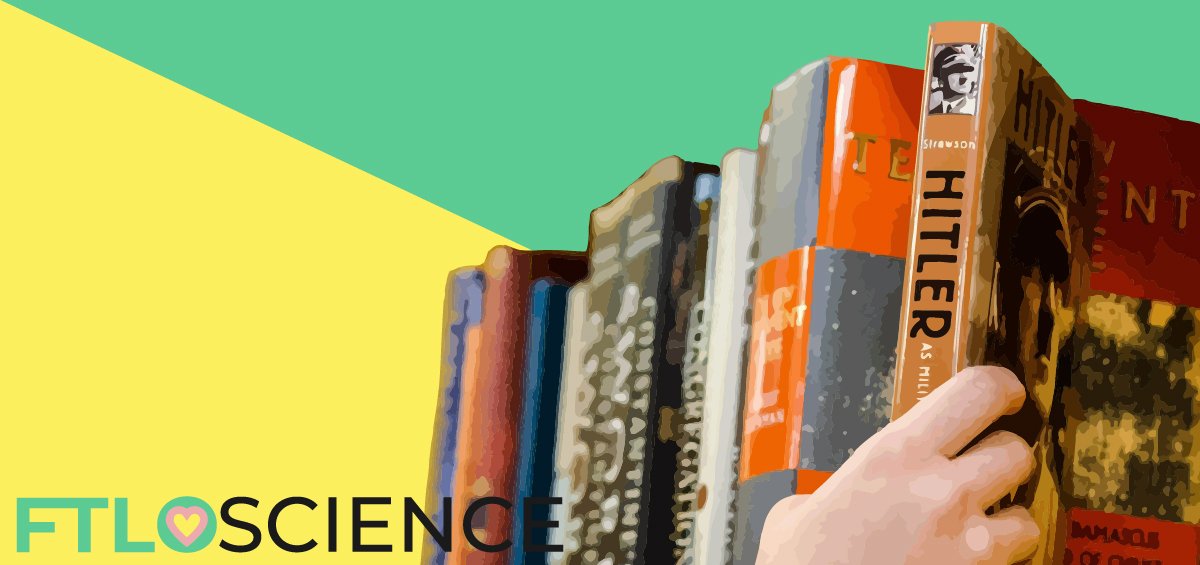Despite the prevalence of science-driven inventions and advancements that shape our society, there is a worrying lack of public knowledge—and even interest—in scientific thinking. But the result isn’t as trivial as the general public not knowing what makes the sky blue. The scientific method aids our everyday decision making; filtering facts from fiction, promoting rational thought and correcting mistakes of the past. A scientifically illiterate society is one that is geared toward failure.
Science Literacy Vs. Scientific Literacy
The U.S. NationalScience Education Standards defines science literacy as ‘the knowledge and understanding of scientific concepts and processes required for personal decision making, participation in civic and cultural affairs, and economic productivity’.
This definition is taken to mean that the general public should have at least a working knowledge of science, which is what current education systems strive toward. Concepts in biology, chemistry and physics are systematically taught to students so that they accumulate knowledge of the natural world.
A 2016 international survey posed a series of ‘true or false’ statements about science concepts to tens of thousands of adults1. Statements ranged from ‘the center of the Earth is very hot’ to ‘human beings, as we know them today, developed from earlier species of animals’. About 65% of the questions were answered correctly, with little evidence for a country/region outperforming another. This was pretty good news, right?
However, despite the positive results of the survey, many who claim to be science literate still believe in non-scientific information. Information from news and media sources is rarely treated with skepticism, allowing marketing ploys like alkaline water and the non-GMO project to thrive.
There is an evident gap between simply learning science in the classroom and applying scientific thought to everyday life. Many go their entire lives without making the connection. Despite years of learning science in school, much of the population remains scientifically illiterate. It is clear that science literacy does not equate to scientific literacy.
What’s the Point of Learning Science?
Learning about science is fascinating, but it should also be taught in a way that forms the basis of scientific thought. Science literacy can be attained through rote learning facts and concepts, regurgitating them to achieve high test (and survey) scores. When we talk about individuals who are ‘good’ at science, we might as well say that they are good at memorizing information.
It would be unfair to completely disregard science literacy, as a working knowledge of science helps us to understand current issues. Scientific literacy takes this one step further by encouraging learning and skeptical thinking in individuals, improving their decision-making skills. From an educational standpoint, however, it is much more challenging to instill this sense of curiosity that shapes individuals capable of critical thinking.
What is often a missed opportunity in education systems is teaching in detail the concept of the scientific method—the cornerstone of scientific literacy. At the most basic level, we construct hypotheses, put them to the test, discard them when they fail and then do it all over again. Einstein’s theory of relativity, the standard model of the atom and the structure of DNA are just some examples of the triumphs that stem from the rigorous use of the scientific method.
Democracy is possibly the best example of the scientific method in use. The implementation of democracy in the United States was a grand experiment by its founding fathers to correct the flaws of previous systems of government. Democracy was designed to transfer power into the hands of ordinary people, instead of the monarchs and dictators and the wealthy and connected.
In a working democracy, policies are created, voted upon in public elections and implemented based on the majority decision. If a particular policy or political leader was deemed to be ineffective, the system would promptly discard or dismiss it and the cycle repeated. Like the scientific method, democracy is not perfect—flawed policies and corrupt politicians still exist—but it is a self-improving system that continues to benefit us to this day.
The beauty of the scientific method is that it is as applicable to research as it is to everyday life. It is a true irony that society today, founded upon countless advancements in science, remains largely ignorant of it.
Implications of Scientific Illiteracy
A particular conversation over lunch with some ex-colleagues of mine still disturbs me to this day. One colleague suggested that consuming microwaved food causes cancer, with several others agreeing. I was stunned; these individuals had, at a minimum, basic degrees in science from good universities. Yet, they were just as easily swayed by false health claims as the general public.
It is a damning indictment of the state of our education systems when working adults with knowledge about science concepts are scientifically illiterate—unable to distinguish between science and pseudoscience. Pseudoscience that quickly falls apart when given the slightest nudge of rational thought.
In most cases, we cannot simply attribute the lack of rational thinking to an inherent gullibility. Many among us without a formal science education are smart individuals with a good capacity for learning. But when the news and social media ply us with lies and marketing ploys, whatever real science we are exposed to is poisoned by pseudoscience. And ill-equipped to ask the right questions, we fall into the trap of simply trusting those in authority.
It becomes particularly dangerous when those in authority abuse this trust to improve their position of power and wealth. Clever (and not so clever) politicians and leaders attempt to incite and create public fear to manipulate us to their will. It is the same strategy that pseudoscientific organizations and religions use to further their interests.
Science does not proclaim that we hold a special place in the universe, it does not reassure us of a cure to every terminal disease, nor does promise life after death. Ignorance may indeed be bliss, but science offers us a tool to make real, tangible improvements to society. It offers us a chance to reverse climate change, to eradicate diseases, to improve the lives of future generations.
As opposed to pseudoscience, science provides actual evidence to prove that its processes work. The Montreal Protocol to reduce CFC emissions has seen the ozone layer repair itself. International collaborative efforts to develop drugs like penicillin have improved our lifespans, while advancements in agriculture and sanitation are reflected in increased life expectancies and quality of life all around the world.
Clearly, a scientifically literate population gives the human civilization its best chance at survival. Science and its advancements have brought us this far; it would be a shame for us to turn our back on it now.
“Science is a way of skeptically interrogating the universe. If we are not able to ask skeptical questions, to interrogate those who tell us that something is true, to be skeptical of those in authority, then we’re up for grabs for the next charlatan—political or religious—who comes ambling along.”
Carl Sagan, Astrophysicist and Science Communicator
Reference
- National Academies of Sciences, Engineering, and Medicine. (2016). Science Literacy: Concepts, Contexts, and Consequences. National Academies Press.
About the Author

Sean is a consultant for clients in the pharmaceutical industry and is an associate lecturer at La Trobe University, where unfortunate undergrads are subject to his ramblings on chemistry and pharmacology.




